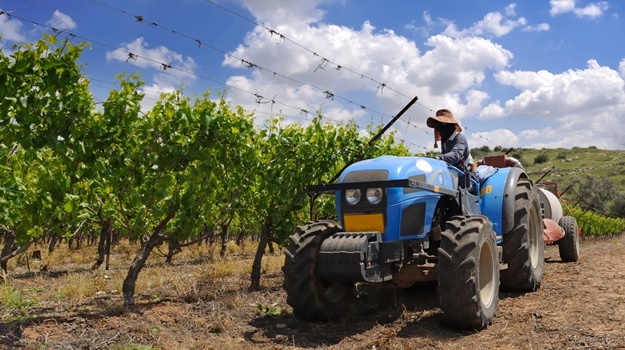
The lockdown regulations are creating endless problems in the processes required to make sure that food gets to poor people, said Dr John Purchase, CEO of the agricultural chamber of commerce, Agbiz.
There has been a tremendous decline in sales of certain meat products, vegetables and fruit, because the informal sector was still being prevented from distributing food among poor people, he said.
The supply chain for food was also being unnecessarily interrupted because police have closed open markets and livestock auctions, and banned informal traders from doing business.
According to Purchase, organised agriculture has been forced to intervene on a number of occasions to try to ensure that informal traders could continue to provide the essential service of getting food to communities.
It took a fight to keep the fresh produce market in Johannesburg open after the metro council wanted to shut it down, and also to convince police to allow so-called bakkie traders to buy food at markets.
READ: Food security and lockdown: Is enough being done?
Purchase said bakkie traders normally bought up to 60% of the market’s produce, and distributed it in townships and rural areas.
He said the decision that street vendors had to register to sell fruit and vegetables on pavements was also unreasonable.
“How are they meant to get to municipal offices to register if there isn’t even public transport available? I believe that as much as 50% of poor people may not have access to food as a result of the lockdown. The consequence of that is an increasing number of shops and delivery vehicles are being looted because people don’t have food.”
Izaak Breitenbach, general manager of the South African Poultry Association’s Broiler Organisation, said 30% of the chicken industry involved the sale of live chickens, but these sales had dried up because the informal market was not allowed to distribute at drop-off points.
People who do not have refrigeration facilities buy live chickens.
Breitenbach said that, although government had okayed informal trade two weeks ago, police officials remained uninformed about the regulations in many cases and prevented informal traders from doing business.
Gerhard Schutte, head of the Red Meat Producers Organisation, said there was also a tremendous decline in the sale of tripe products, which was being ascribed to the fact that the informal market was battling to get produce to its consumers.
“At one point, the sale of tripe came to a complete standstill, but at least it’s slowly starting to pick up again.”
According to Schutte, they were involved in a dispute with the police in the Free State, who abruptly decided to halt auctions and even threatened to arrest farmers and auctioneers.
Police this week prevented auctions in Kroonstad, Frankfort, Bethlehem and Bloemfontein because, according to them, these were unlawful gatherings.
Schutte said they were now waiting for Agriculture Minister Thoko Didiza to publish regulations on the subject to avoid the continued confusion.
“This creates enormous problems in the food supply chain, which means that less red meat can be sold in the market. Developing farmers are hit hardest by this. They are prevented from selling a few cattle to generate cash flow and pay salaries,” he said.
In addition, Purchase said, the lockdown regulations had dried up the market for various agricultural products because the demand for food had declined and because restaurants and catering services had closed.
Farmers were now battling to store an oversupply of meat and had no capacity for the slaughter of any more animals. This also ultimately impacted the food supply chain, he said.
Purchase did, however, say that the oversupply scenario could change dramatically if, for example, Covid-19 coronavirus infections broke out at abattoirs, which would then have to be closed down.
According to him, exceptional infection control measures were being implemented at abattoirs to prevent workers becoming ill.
* Unilever, Tiger Brands and Coca-Cola have had to shut down their factories in Boksburg, Durban and Soweto, respectively, after personnel tested positive for the virus recently. The same thing happened at certain Shoprite, Pick n Pay and Dischem stores.




 Publications
Publications
 Partners
Partners









